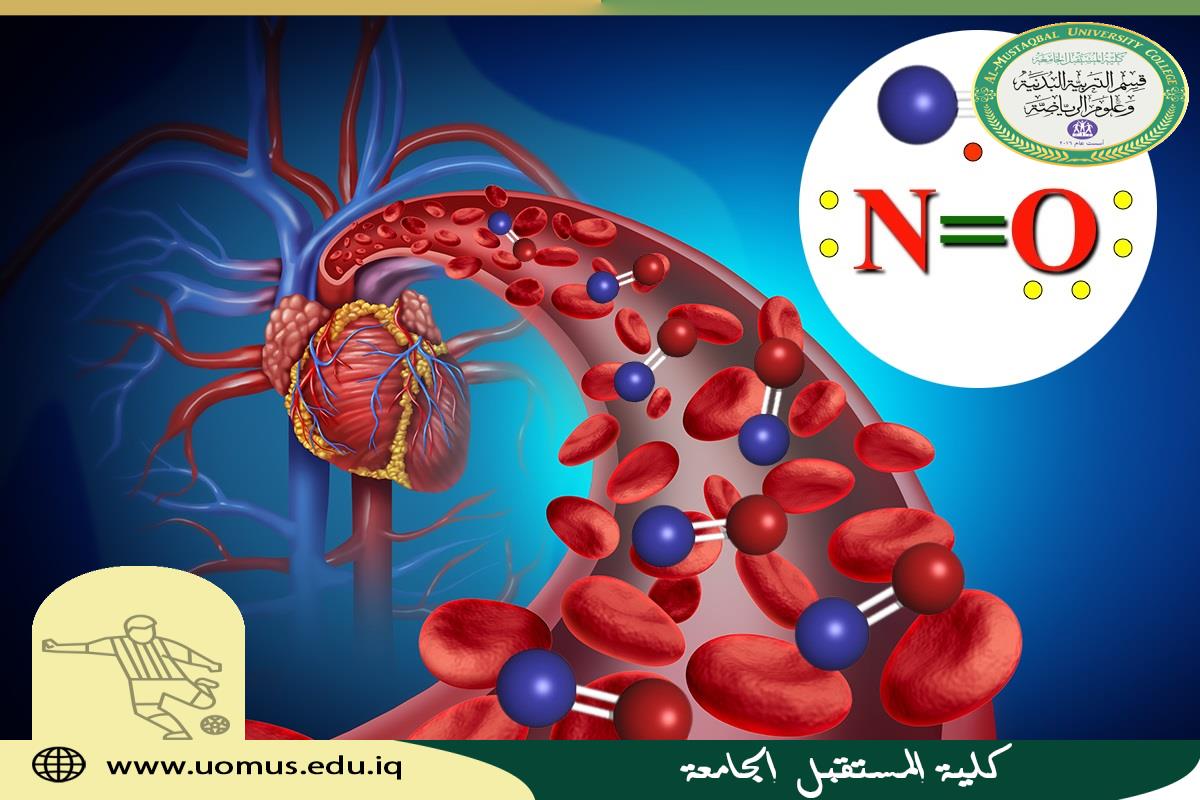
|
article by Asst.L Hayder Nazar Jawoosh, entitled Nitric Oxide in Physiology
Adding Date: 11/07/2022
Views: 140
Published by: Al-Mustaqbal College Administration
|
Nitric Oxide in Physiology
Hayder Nazar Jawoosh
Physical Education and Sport Sciences Department, Al-Mustaqbal University College, 51001 Hillah, Babil, Iraq
[email protected]
Nitric Oxide (NO) is an influential signaling molecule, which rapidly acts on vascular smooth muscle via guanylate cyclase. The result of this causes increases in cyclic guanosine mono-phosphate, which facilitates relaxation effects in smooth muscle, further producing vascular dilatation. Dietary nitrate (NO3−) typically obtained from green leafy vegetables and in particular from beetroot is reduced to NO2− by nitrate reductase, causing a sustained increase in circulating NO2− levels. It is principally a vasodilator, producing a relaxation effect upon the vascular endothelium. Dietary NO3− is 100% bio-available and is readily absorbed in the upper gastrointestinal tract. Dietary nitrate and nitrite can therefore be considered storage pools for NO bioactivity.
Nitric oxide dilates blood vessels, raising blood supply and lowering blood pressure. Conversely, it helps protect tissues from damage due to low blood supply. Also a neurotransmitter, nitric oxide acts in the nitrergic neurons active on smooth muscle, abundant in the gastrointestinal tract and erectile tissue. Sildenafil (Viagra) works to inhibit the enzyme phosphodiesterase PDE5, which increases the cGMP concentration by inhibiting the conversion to GMP.
Nitric oxide (NO) contributes to vessel homeostasis by inhibiting vascular smooth muscle contraction and growth, platelet aggregation, and leukocyte adhesion to the endothelium. Humans with atherosclerosis, diabetes, or hypertension often show impaired NO pathways.
Nitric oxide (NO) is a mediator of vasodilation in blood vessels. It is induced by several factors, and once synthesized by eNOS it results in phosphorylation of several proteins that cause smooth muscle relaxation. The vasodilatory actions of nitric oxide play a key role in renal control of extracellular fluid homeostasis and is essential for the regulation of blood flow and blood pressure.
Nitric oxide also acts on cardiac muscle to decrease contractility and heart rate. NO contributes to the regulation of cardiac contractility. Emerging evidence suggests that coronary artery disease (CAD) is related to defects in generation or action of NO.
As a consequence of its importance in neuroscience, physiology, and immunology, nitric oxide was proclaimed "Molecule of the Year" in 1992. Research into its function led to the 1998 Nobel Prize for elucidating the role of nitric oxide as a cardiovascular signalling molecule.
Key word: Physiology, Nitric Oxide, Blood, Muscle
|
|
|
|